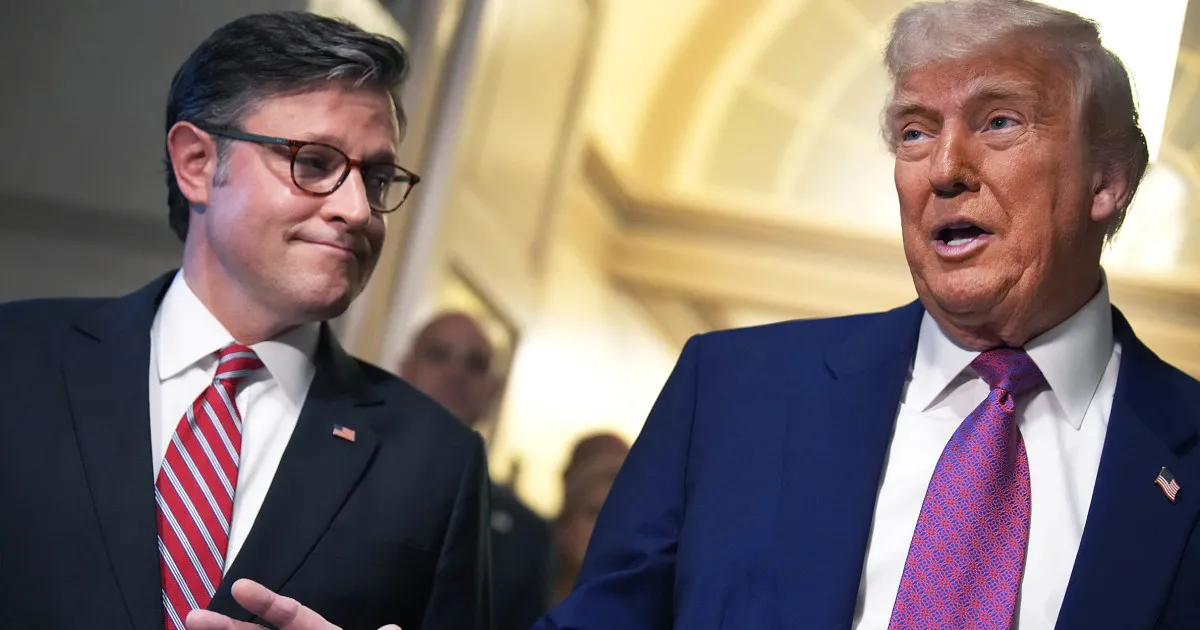
In a significant move, the White House has sent a formal request to congressional leaders to reclaim $9.4 billion in previously approved spending, primarily targeting foreign aid. This initiative, known as the rescissions package, proposes substantial reductions in funding allocated to the U.S. Agency for International Development, as well as to NPR and PBS. The package is designed to implement cuts recommended by the Department of Government Efficiency (DOGE), an advisory body that was recently led by billionaire entrepreneur Elon Musk until his departure from the position last week.
The rescissions package seeks to secure simple majority support in both the House and the Senate, allowing Republicans to advance the proposal without the need for Democratic backing. It includes an astounding $8.3 billion in cuts to foreign aid, impacting various programs aimed at supporting LGBTQ communities. Additionally, the proposal outlines reductions in funding for education and transportation initiatives, reproductive health services, and contributions to the World Health Organization. Notably, it proposes approximately $142 million in cuts for UNICEF and nearly $9 million in reductions to the U.S. President’s Emergency Plan for AIDS Relief.
Moreover, the package plans to cut $1.1 billion in funding for the Corporation for Public Broadcasting. While the $9.4 billion in proposed cuts may seem substantial, it pales in comparison to the staggering $6.8 trillion that the U.S. government spends annually.
Despite the potential for significant cuts, congressional Republicans are concurrently working on a broad domestic policy bill that could add more than $2 trillion to the national debt. Nonetheless, proponents of fiscal conservatism view this rescissions package as a crucial step toward reversing authorized spending, a rare endeavor in Washington. Both Senate Majority Leader John Thune of South Dakota and House Speaker Mike Johnson of Louisiana have expressed support for moving forward with this request promptly.
Once submitted, Congress has a 45-day window to pass the rescissions package. Johnson emphasized the importance of the package, stating, “This rescissions package reflects many of DOGE’s findings and is one of the many legislative tools Republicans are using to restore fiscal sanity.” He assured that Congress would work closely with the White House to codify these recommendations, aiming to bring the package to the floor swiftly.
Historically, rescission packages often face significant hurdles in Congress, as the legislative body typically resists attempts by the president to retract previously allocated funds. Senator Susan Collins of Maine, chair of the Appropriations Committee, has voiced concerns about the procedural complexities, noting, “We’re still talking with the parliamentarian about what can and can’t be done,” referring to the Senate's in-house referee for rules. “It’s extremely complex, and the rules, because there hasn’t been a successful rescission package in many, many years,” she added.
The House Freedom Caucus, a coalition of conservative lawmakers, is advocating for an expedited vote on the rescissions package. Rep. Andy Harris of Maryland, leading the group, stated, “The House Freedom Caucus strongly supports these critical rescissions, and we will support as many more rescissions packages the White House can send us in the coming weeks and months.” He emphasized the urgency of moving the package through Congress quickly, asserting, “While the Swamp will inevitably attempt to slow and kill these cuts, there is no excuse for a Republican House not to advance the first DOGE rescissions package the same week it is presented.”